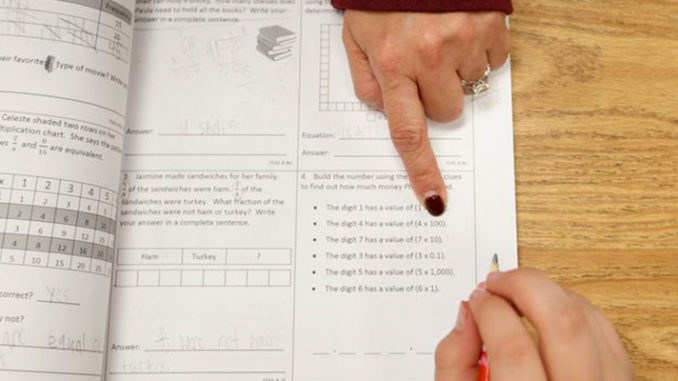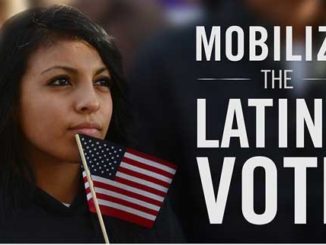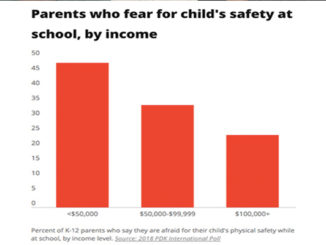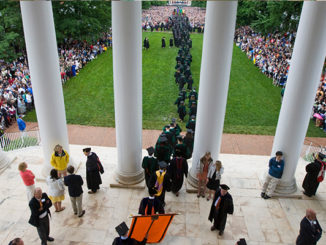
Not many school districts are partnering with charter schools, in some cases because they know it wouldn’t be politically palatable in their communities.
by , Texas Tribune
A 2017 law made some waves by encouraging traditional school districts to partner with charter schools as a way to create more high-quality, innovative schools.
The law incentivizes districts to hand over the management of certain schools to a partner organization in exchange for additional funding. Districts with chronically underperforming schools also get a temporary break from harsh state penalties under Senate Bill 1882.
Opponents argued the law was intended to facilitate the expansion of charter schools, which are publicly funded and privately managed, at the expense of traditional schools that compete with them for money and students.
But two years in, not many school districts are partnering with charter schools, in some cases because they know it’s not politically palatable in their communities. Instead, districts are using the law to partner with universities and private nonprofit organizations, sometimes ones they have created and staffed — allowing them to reap the monetary benefits of the law without giving up as much control over their schools.
For example, Waco ISD in Central Texas tapped Transformation Waco to overhaul five chronically low-performing schools instead of permanently closing them. District officials helped to create the nonprofit in 2018 for the sole purpose of forming a partnership; Transformation Waco’s single employee is a former assistant superintendent for the school district. Everyone else working at the five schools is an employee of Waco ISD.
“Families wanted schools to stay open, but it was also very important for them that we maintain local control and, more than that, local relationships,” said Kyle DeBeer, Waco ISD assistant superintendent of communications.
School districts are “responding to their own community needs,” said Bibi Yasmin Katsev, executive director of the Texas District Charter Alliance, which advocates for district-charter partnerships. “This is the trend we wanted to see regardless of what route they take.”
But some charter advocates are worried that districts are resisting choosing partners that would drastically change the way their schools are run, skirting the intent of the law and potentially preventing needed improvements.
“What we’re seeing is nonprofits started by districts, run by principals that used to be at the district,” said Starlee Coleman, chief executive officer of the Texas Charter Schools Association. “There really isn’t that autonomy and flexibility that was envisioned.”
A cautionary tale
The partnership law passed quietly in 2017, billed as a way to encourage collaboration between districts and charter schools and give more students access to high-quality schools. State Sen. Paul Bettencourt, R-Houston, one of the authors, said that governmental entities and nonprofits were added as potential partners to appeal to lawmakers who aren’t as supportive of charter growth.
School districts can use a partnership to try out a new educational model in a school that is already thriving. Or, more notably, they can use a partnership as a way to overhaul schools that have repeatedly failed to meet state academic standards.
Texas law threatens strict penalties for districts with schools considered failing for more than four years, including forced closure of the underperforming schools or state takeover of the school board. Districts that opt into partnerships get a two-year pause from those penalties.
But once school districts actually attempted to draw up proposals, community members packed into local meetings to rail against giving up the management of their neighborhood schools to outside organizations. In 2018, San Antonio ISD chose a New York-based charter group to run a low-performing elementary school, entering into a contract that allowed the charter group to hire and fire teachers at will. Members of the local teachers union argued they were told about the plan too late and that teachers who worked at the elementary school would lose district protections.
The public fallout served as a cautionary tale for others considering partnerships. “I think there were some lessons learned from that partnership in San Antonio,” Katsev said. “People decided to have more of that community involvement.”
Lubbock ISD officials, in West Texas, hosted several community forums before choosing a new nonprofit called the Lubbock Partnership Network to run four schools on the district’s east side, including a middle school that had low performance for five years.
Cicely Alexander, a former Lubbock ISD elementary school principal, was named the nonprofit’s executive director, in charge of running the four schools, as a sort of school district within a school district. It has an independent, appointed school board made up of local community members.
Without the partnership, Dunbar College Preparatory Academy, the low-performing middle school, would have been shut down, endangering the elementary schools that feed into it, Alexander said. Dunbar will now have a longer school day, more training for teachers and an extensive after-school program with free dinner provided.
Unlike in San Antonio’s controversial partnership, all teachers will remain contract employees of the school district, which is more palatable for local teacher groups.
“I’ve seen it as a positive. It’s not the normal charter schools you see in the urban districts,” said Clinton Gill, a former Lubbock ISD teacher who now helps support the local chapter of the Texas State Teachers Association. “The company … is headed up by people in the community in Lubbock rather than some outside company.”
Charter battle
For some superintendents, a partnerships with charter schools — fierce competitors seen as stealing resources from urban public schools — would be politically catastrophic. This year, Dallas ISD put out a call for partners to help bolster its pre-K offerings that explicitly prohibited charter schools from applying.
“Unfortunately, people are using this tool that’s supposed to incentivize collaboration to put a stake in the ground to be further anti-charter,” said Coleman, of the Texas Charter Schools Association.
And Houston ISD parents and other community members effectively blocked the school board from approving any partnership, with charters or other organizations, disparaging the approach as a Trojan horse for privatization. Four low-performing schools put the district at risk of state takeover, and they might not all pass the upcoming state ratings.
“In the community, people flat-out said no,” said Zeph Capo, former president of Houston ISD’s local teachers union and now president of the state’s chapter of the American Federation of Teachers. “Just for agreeing to try it, it was as if we were selling out all of our schools.”
In East Texas, Beaumont ISD parents and community members, too, were wary about the potential privatization of their schools. But administrators decided to partner with two charter organizations anyway to improve three low-performing schools, starting this fall.
They had considered more than 30 other potential partners, including a local university and a principal who proposed creating a nonprofit to run a dual-language program at one of the schools, according to Superintendent Shannon Allen. But ultimately, the two charter groups, including one from Indiana, convinced district leaders they could improve student performance and the culture at the schools.
“We heard great concern in the community because the perception was that we were quote unquote giving away our schools to the charters,” Allen said. “We were going to be in a situation where we had to close schools … and we didn’t want to close those schools.”
Will it work?
Bettencourt said he’s waiting to see how the partnerships affect student academic performance. “I just hope that the nonprofits use the same best practices that we saw in the major charters,” he said. “This is not insignificant money, and for that, we want significant performance and improvement.”
As superintendents anxiously await the latest state ratings of their schools, it’s unclear exactly what impact the partnerships will have on getting low-performing schools up to state standards.
With one year of a partnership under its belt, Waco ISD is expecting mixed results for its five schools. A couple of schools that had improved will likely receive failing grades, one will improve and two will remain where they were.
District officials are still studying exactly why the two schools backslid. Both had a significant amount of staff turnover in the summer before the partnership began, while the others did not. Transformation Waco, the partner nonprofit, focused during the year on bolstering teacher retention and recruitment, but it was hard to make up for the teachers already lost, said Robin McDurham, the nonprofit’s executive officer.
“The kind of turnover we were looking at, we were working hard to counter it during the school year,” she said. “It’s a process of gaining traction each year.”
The article originally appeared on the Texas Tribune on 8/2/2019 with the tittle Texas tried to incentivize school districts to work with charters. Districts are turning to local nonprofits instead.



